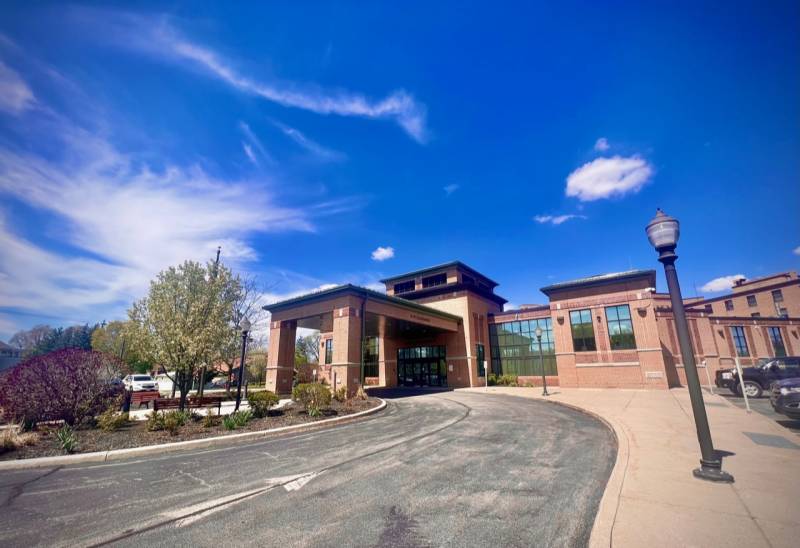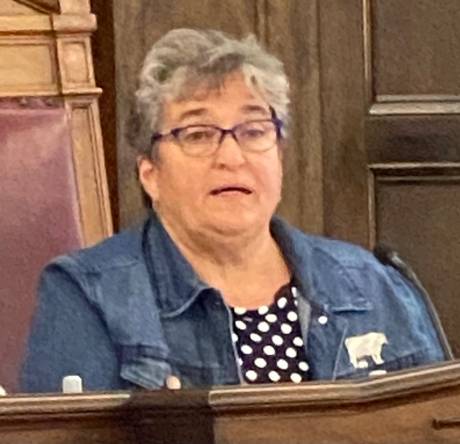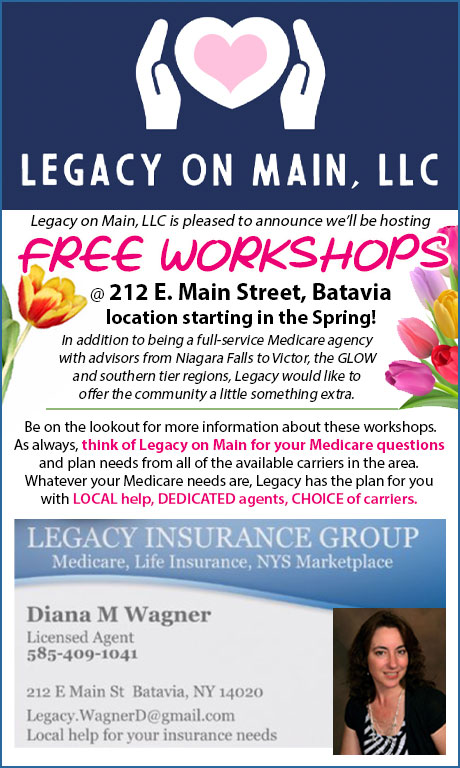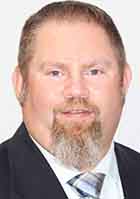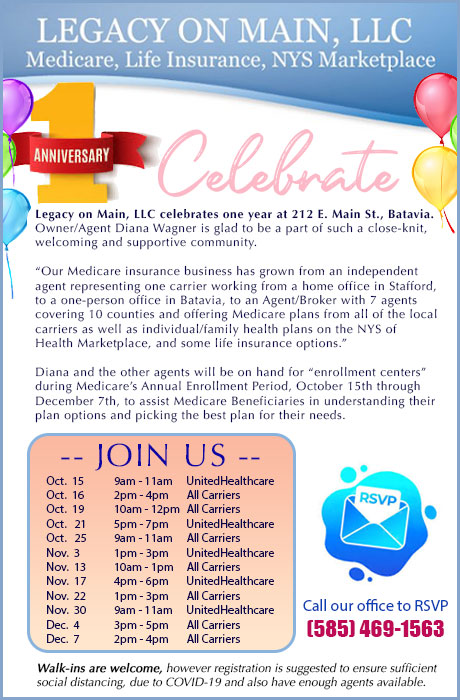This entry concludes Sunday's article on the comments of Victor DeSa, M.D., who spoke to senior citizens at Batavia's First United Methodist Church last week.
Please remember, this is a summary of DeSa's presentation and does not necessarily reflect the views of The Batavian:
Medicare, Medicaid and senior services
By requiring insurance companies to expand coverage, the new health care law will drive costs up, according to DeSa. The government has told consumers that these costs will be offset by subsidies for people making less than $80,000 per year.
These subsidies will be coming, in part, from a $500 billion cut from Medicare -- and that's where senior citizens and others eligible for Medicare should be concerned.
But this is not the only problem. Both Medicare and Medicaid, which DeSa called "the original two public options," have met with disaster. Medicaid has already failed, and Medicare is on the brink of failure.
"The government has no idea how to handle the rising costs. Their idea of handling the costs is to take a machete to (the programs) and cut."
The result is the "doctor fix," a 21-percent cut in doctors' reimbursements. This could be disastrous in a system where the cost of providing services is already greater than what the doctors receive in compensation.
For that reason, many doctors no longer accept Medicare. The Mayo Clinic in Arizona has already determined that because of the new health care legislation, it will no longer deal with the program.
"So Medicare patients are going to have fewer and fewer choices of who is going to take care of them."
With fewer doctors available, waiting periods will increase. So the direction Medicare is taking presents seniors with a double disadvantage.
The government "carved the 21-percent doctor fix out of the bill" in order to avoid upsetting America's seniors, but that doesn't mean they've addressed the cost. They are simply pushing it to the side and will have to deal with it later.
"Six months down the road, they have to still come up with a fix for this 21-percent cut that they are going to make on Medicare payments to the doctors."
So that's the story with Medicare and Medicaid. As far as insurance for retired citizens goes, people who worked in the public sector should be okay (although DeSa said it's not impossible that this could change, because "anything is possible" with what the government is doing), but people in the private sector should be concerned.
What to do?
When asked how we can change the course we've taken, DeSa answered: "We've got to kick out the guys who did this."
He appealed to the power of senior citizens -- which he became two years ago -- who are "feared in Washington because we vote."
Many seniors were suspicious when the government said that $500 billion had to be cut from Medicare to cover health care.
"If they really addressed costs the way we asked them to do, a person making $40,000 a year be able should be able to afford health care coverage without subsidies, don't you think?"
Failure to address the problem of cost in the current system was one of DeSa's main critiques of the health care bill. He said that in looking for alternative plans, we need to look for one that does address them.
Counting the costs
There are three main factors driving health care costs:
1) Overuse
Back in the old days, when there was usually only one doctor in town and he had to go to patients' homes to treat them, people only went to the doctor when there was something really wrong.
Now, with easy access to medical examination and treatment, people will go to the doctor -- and even to the emergency room -- whenever they have a minor health concern.
"We have to change that if we want to truly address the cost of health care."
But it's not just patients -- doctors sometimes overuse the system, too.
"I hate to admit it, but there's greed in every profession. There are bad apples in every bunch, and you've got to admit it."
2) The fact that people have insurance in the first place
Strange as this may sound, this can be a problem.
"Insurance is like a credit card, but you don't have to pay every month. So there's no incentive for you to be prudent with the costs. You don't even want to know what the cost is, you just want the health care."
DeSa believes that while insurance cannot be eliminated altogether, people should reduce their dependence on it. For health purposes, they should only turn to insurance in times of emergency.
Generally speaking, the way people take care of this part of the cost is by having "skin in the game."
"If you shop around for a car or a house, why shouldn't you be able to shop around for a doctor? Especially in this day and age, with the Internet and everything."
3) Liability
"Everything from a Band-Aid to a heart valve has a mark-up depending on the risk."
In other words, the more dangerous the a product or its failure can be -- and, therefore, the greater the likelihood of a lawsuit -- the more expensive the product.
Because the liability cost is factored into the price of the product itself, "the little guy gets it in the neck every time."
DeSa fully supports the patient's right to sue when a doctor has done something wrong or is incompetent, but he also believes that the whole liability issue should be looked at when considering the cost.
Government out, skin in (the game)
Costs are going down for procedures that are not covered by insurance (Lasik surgery is one example). The reason?
Competition.
"Costs come down if there are market forces in place."
DeSa saw this in his native India, which had a socialized health care system until the early 1990s.
When he was studying at Jabalpur University in the mid '60s, the Indian government had total control of health care and sent all competing forces out of the country.
The effect of this was what DeSa called a "brain drain."
"The best and the brightest (doctors) were all leaving the country."
He sees the same thing happening here in Western New York, where there is a serious shortage of doctors.
"Over 80 percent (of young doctors surveyed at Western New York teaching institutes) say they'll train here, but they're not going to stay in New York to work. We are known as one of the most heavily taxed and over-regulated states in the country."
Our response to this situation should mirror the response taken in India back in 1990. At that time, India began to default on its World Bank loans. Finance Minister Monmohan Singh -- who is now India's Head of State -- saw that the system was not working and started the country on a different path.
"He got rid of the government, encouraged entrepreneurship and lowered taxes."
Above all, the patient must take responsibility and be in control of his/her own health care. It can't fall to the federal government to make important decisions regarding people's health care, no matter how well-intentioned they might be.
Déjá vu
In addition to drawing from the experience of his native country, DeSa also discussed two other examples of what he sees as a health care system set up for failure.
The U.S. government's new health care model is based on the Massachusetts health care model, which DeSa called "an abject failure." He cited problems related to his comments about young, healthy citizens abusing health insurance.
"Just Google 'Massachusetts Health Law -- success or failure?'"
Socialized health care has proven disastrously ineffective in Britain as well.
"Just this month, Britain recognized that its system is a failure and said they are going to change the whole thing."
Part of that change will be a shift in power from bureaucrats -- of which there are 1.5 million overseeing the United Kingdom's National Health System -- to the doctors. As good as this sounds, DeSa fears it may be too late for it to work.
"The doctors (in the UK) have no business experience. Up to this point, the government has been taking care of everything."
His concern is that U.S. doctors will share a similar fate. As his presentation drew to a close, he told everyone that under the government's new plan, there will be over 120 new bureaucracies controlling health care.
DeSa admitted right at the start of his presentation that he had a bias as a health professional. He encouraged everyone to do their own research and decide for themselves whether or not the new health care reforms are to be welcomed or feared.
